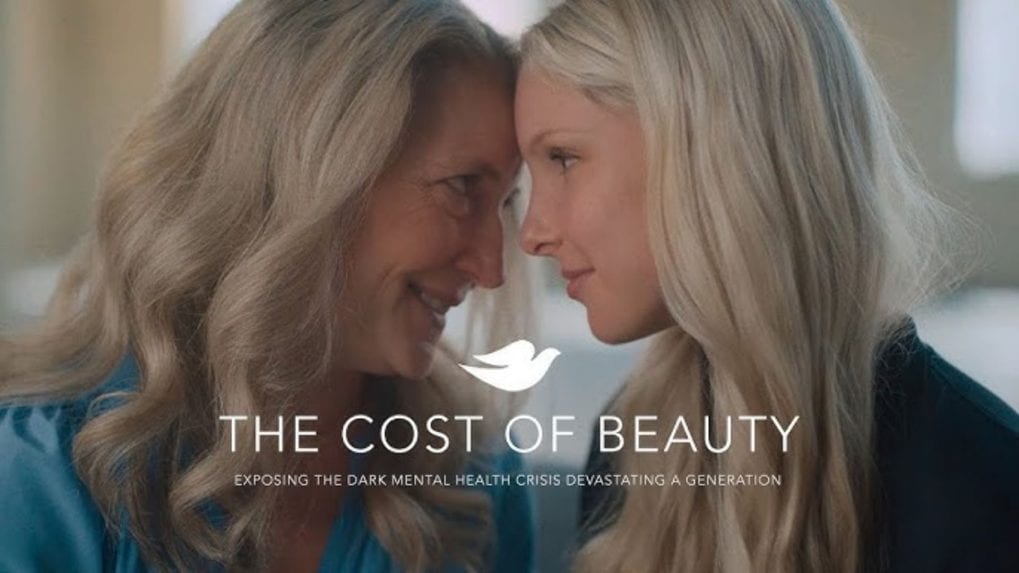Advertising
From Pink Slips to Silent Sidelining: Inside adland’s layoff and anxiety crisis

In the era of Instagram filters, perfectly curated lives, and viral beauty standards, the ugly truth is that many young people are suffering in silence.
As social media platforms expand, so does the bombardment of toxic beauty content. According to recent studies, three out of five kids are experiencing mental health issues triggered by what they see online.
Depression, anxiety, and self-harm are rising, and suicide was reported as the second leading cause of death among 10-34-year-olds in 2018. In short, the stakes are incredibly high.
This is where Dove and Ogilvy’s campaign came in, with a mission to shine a light on the mental health crisis stemming from toxic beauty standards. And, let’s just say – they didn’t just make an impact. They made a statement that resonated far beyond the realm of advertising.
The campaign: A real story told through real footage
Dove’s "Cost of Beauty" is at the forefront of challenging traditional beauty standards. In this campaign, they flipped the script. Instead of a fictional narrative, they showcased the real-life struggles of Mary, a young woman whose life spiralled into an eating disorder after exposure to harmful beauty content on social media.
What makes this film different from the usual celebrity-driven advertisements? It was entirely built from Mary’s own photos, videos, and journal entries that spanned over a decade. The use of real, raw material brought an authenticity to the story that was impossible to ignore.
Set to a hauntingly emotional female cover of Joe Cocker’s "You Are So Beautiful to Me," the video traced Mary’s descent into self-doubt and body image issues, triggered by her growing obsession with social media.
As Mary’s story unfolded, it became painfully clear: this wasn’t just her issue. It was the story of millions of girls around the world who had fallen victim to the very same pressures. The film ended with a powerful call to action, urging viewers to sign the petition supporting the Kids Online Safety Act.
Success and impact
Dove’s campaign didn’t need a celebrity endorsement to go viral – it did so on its own merit. The film launched organically, and within 10 days, it amassed a staggering 9.13 million combined views across Dove’s social media channels (Instagram, TikTok, YouTube). This was the brand’s most successful organic video of all time, with a 157% increase in followers compared to the previous period.
Beyond the social media buzz, the campaign generated a massive 2.5 billion earned media impressions, with 190 placements across major outlets like NBC, Women’s Health, and Teen Vogue.
The film was widely shared by influencers, policymakers, and even high-profile figures like Senator Richard Blumenthal and best-selling author Faith Popcorn, which only amplified its reach.
Also Read: Global Ads Spotlight: In Peru, a new path forward for the visually impaired with SightWalks
But a campaign’s true power lies in its ability to spark real-world change. Dove not only exceeded its target of gathering 50,000 petition signatures for the Kids Online Safety Act, but it also saw a remarkable 300 signatures per hour rolling in.
Awards and recognition
Unsurprisingly, the campaign earned widespread acclaim from industry experts. At the 2023 Cannes Lions Festival, the film clinched a Gold Lion, further solidifying Dove’s reputation as a brand that doesn’t just sell beauty products – it advocates for positive change in the beauty industry and beyond.
Dove’s campaign isn’t just a film – it’s a movement. By humanizing the issue and using real stories, they’ve managed to strike a chord with viewers in a way few brands can.
The campaign’s ability to go viral without the need for a celebrity endorsement, its massive social media success, and its direct call to action for political change is proof that advertising can do more than just sell. It can challenge norms, spark change, and, most importantly, make the world a better place.
From purpose-driven work and narrative-rich brand films to AI-enabled ideas and creator-led collaborations, the awards reflect the full spectrum of modern creativity.
Read MoreLooking ahead to the close of 2025 and into 2026, Sorrell sees technology platforms as the clear winners. He described them as “nation states in their own right”, with market capitalisations that exceed the GDPs of many countries.